|
Dear B Douglas Harding used to hold Zen meditation sessions by lying on the floor. He had no time for formal structure - as 'having no head' also apparently meant that 'he had no body' - although most people who encounter his work seem not to realise the latter. Richard Hunn knew John Blofeld and Douglas Harding - although if he knew Terrence Grey - nothing was said to me. Blofeld mentions meeting Xu Yun - but Xu Yun does not mention meeting Blofeld. This need not negate the encounter - as Xu Yun was photographed with numerous Westerners - many of whom are not mentioned in his biography. In the UK - the barbarous treatment meted-out by the Imperial Japanese Army to British POWs and civilians is still remembered with disgust and derision - as is their savage treatment toward tens of millions of Asian victims. Just what Blofeld is talking about does not ring true. Richard told me that Blofeld eventually retired to Thailand - and 'gave-up' Buddhism in the last years of his life - becoming anti-Asian and pro-Christian, so perhaps his wayward attitudes express these changes. I inherited Charles Luk's papers, and having looked through the volumes, I can say that there is no mention of John Blofeld, Douglas Harding or Terrence Grey. Charles Luk was opposed to Japanese religious corruption and actively campaigned against it. He certainly would not have assisted Blofeld if he knew of his pro-Japanese attitudes. As to hilly Hong Kong mountains - he is probably speaking of the Sai Kung area of the New Territories - where our Ancestrial village used to be. As the area is now a 'National Park' - the US social media has extended the so-called '411' mythology to include this area. Whenever I visited the area - I used to make sure I was with Chinese relatives who knew where they were going. Yes - Richard Hunn gave me his copy of John Blofeld's Yijing. It is a peperback to which Richard added a stouter cover. Of course, it is not the full Yijing, but only the Hexagrams, its line commentaries, the Judgements and Images. From what I can see, I believe Blofeld is copying Wilhelm and is not working from the original Chinese language text. It is a re-interpretation of a translation. Of course, I suspect there are hundreds of these re-interprtations in the English language by now - and that a certain selection can grant an overview of the original text. I am told that an astonishing 600,000 Americans go missing each year in well sign-posted National Parks and National Forests - although all but 6,000 are found safe and well - and that this finding is through the application of the scientific method. When people's lives are at stake I doubt superstition can replace logic and reason. In the days that Blofeld is referring to - the New Territories were strewn with hundreds of villages - many of them Hakka (he does not know this because he never went there). The distance between villages was quite often miniscule. I would say that getting truly lost would have been very difficult as there were settlements everywhere. These are the settlements the Imperial Japanese Army raped and pillaged their way through - killing at least 10,000 people in a relatively small area (1941-1945). The Yijing certainly did not assist the ethnic Chinese escape this fate. One last point that Blofeld is missing is that the Imperial Japanese Government 'banned' everything 'Chinese' - and this included the study of the Yijing. Blofeld is, therefore, misinformed and I would say, not to be trusted. With Metta Adrian
0 Comments
What about the dishonest, the the lying and the deceptive? What happens when such people 'pretend' to seek Ch'an instruction, guidance or clarification? Generally speaking, this is not a problem. If the Ch'an Teacher, Master or Guide has realised the (enlightened) 'host' position, that is the 'empty mind ground', then the questioner - regardless of their apparent 'honesty' or 'dishonesty' - simply represent the (deluded) 'guest' position, and no further explanation is required. The 'honesty' and/or 'dishonesty' of the enquirer means absolutely nothing as the moral-tone of the words such individuals use are all subject (without exception) to being 'returned' to their essential source. The Hua Tou method does not discriminate or support any form of dualistic thinking or acting. The 'enlightening' function is performed by all genuine Ch'an Masters automatically turn ALL words, regardless of the moral orientation of the enquirer, back to their empty essence. When the enquirer is subjected to this process in an appropriate manner, then all delusive constructs 'drop-away' never to arise again. The genuine Ch'an Master is indifferent and can laugh, smile, remain silent or chastise as the need arises. What matters is the realisation that there is NO action the 'guest' can take which will disrupt the 'host'! When the 'host' rests in the 'host' - the trivialities of the 'guest' have NO place to abide or function! Therefore, those who approach - 'approach' - and when 'struck-down' - they 'leave'. Nothing changes in the reflection and there is NO undue movement in the situation.
The publishing business can be a tricky place full of pitfalls for the inexperienced and the unwary – Richard Hunn (1949-2006) was neither of these two things. What he was amounted to being one of the most talented and well-educated Western authorities upon the subject of Chinese languages, Chinese history, Chinese culture and Chinese thought! Indeed, so highly regarded was he in these areas, that even as a young man, Charles Luk (1898-1978) took him as his personal disciple and despite knowing and teaching thousands of others in the world – transmitted the Ch’an Dharma exclusively to him! In 1991, Richard Hunn emigrated to live in Kyoto, Japan, where he taught English Language and English Literature at Kyoto University. He took on this career so that he could dedicate his spare-time to the study of Chinese Ch’an in Japan. In 2002, whilst sat in the living room of my house in Sutton, South London, Richard Hunn became very upset and started to convey to me the story of how he had spent many years carefully translating a number of Ch’an Enlightenment Poems – most of which were completed, checked and endorsed by Charles Luk himself prior to his passing! As Richard Hunn had held Ch’an Week Retreats as a Guest Teacher of the Western Ch’an Fellowship in the Bristol area of the UK- it was suggested to him around 1983, that he forward his finished manuscript containing these poems to Master Sheng-Yen (聖嚴) so that the Taiwanese Head of the Western Ch’an Fellowship could be invited to write and ‘Introduction’. Within Chinese language sources, ‘Sheng-Yen’ is referred to as ‘聖嚴法師’ (Sheng-Yen Fa Shi) or Shang-Yen Dharma Master’ (which implies he is learned with regards to the Buddhist sutras, their contents and their meanings), but is never referred to as ‘聖嚴禅師’ (Sheng-Yen Ch’an Shi) or ‘Sheng-Yen Meditation Master’ - implying that he is acknowledged as specialising in ‘mind to mind’ communication and transmission. Indeed, it is only through his own self-referencing that ‘聖嚴禅師’ is encountered. Richard Hunn wrote a letter in the Chinese language introducing himself and his Ch’an lineage – and enclosed copies of all his translated Ch’an poems – politely enquiring as to whether Master Sheng-Yen thought the poems were of any use – and if so – if he had the time to compile an ‘Introduction’? Richard Hunn did not receive any reply – not even an acknowledgement of receipt. Prior to his passing in 2006, Richard Hunn showed me his decades-old translation work with his scribbles, crossings-out, underlining and highlighting of the original Chinese-language texts of these poems – Charles Luk’s comments written under about two-thirds of the finished translations. This work was completed by Richard Hunn between 1975-1983. As many were posted to Charles Luk who was living in Hong Kong, the dates of these translations are clear for all to see. Richard Hunn was astonished, therefore, to be contacted by a student (in 1985) who said he had come across Richard’s translation work in a book on sale in a British bookshop – but published under the name of one ‘Master Sheng-Yen'! Obviously, I inherited all the papers of Charles Luk and Richard Hunn, and I have in-front of me now, Richard’s original English language translations of a number of poems regarding Ch’an Enlightenment (together with the ‘original’ Chinese texts he translated these poems from) - and they are ‘identical’ word for word – for those poems which appear under Master Sheng-Yen's name! Furthermore, the entire book from its ‘title’ to the calligraphy used on the opening pages all belongs to my teacher – Richard Hunn! Reading these poems is to touch the heart of Richard Hunn as they have absolutely NOTHING to do with the creative talents of Master Sheng-Yen! Indeed, his life has been controversial in many areas – including being a member of the Taiwanese military between 1949-1960.
Chinese Language Reference: https://baike.baidu.com/item/释圣严/1956534 |
Archives
March 2024
Categories
All
|
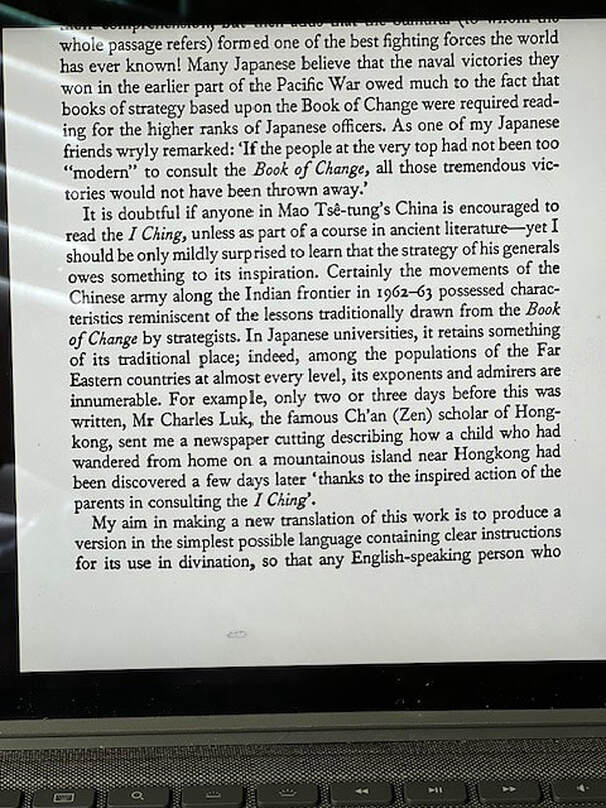

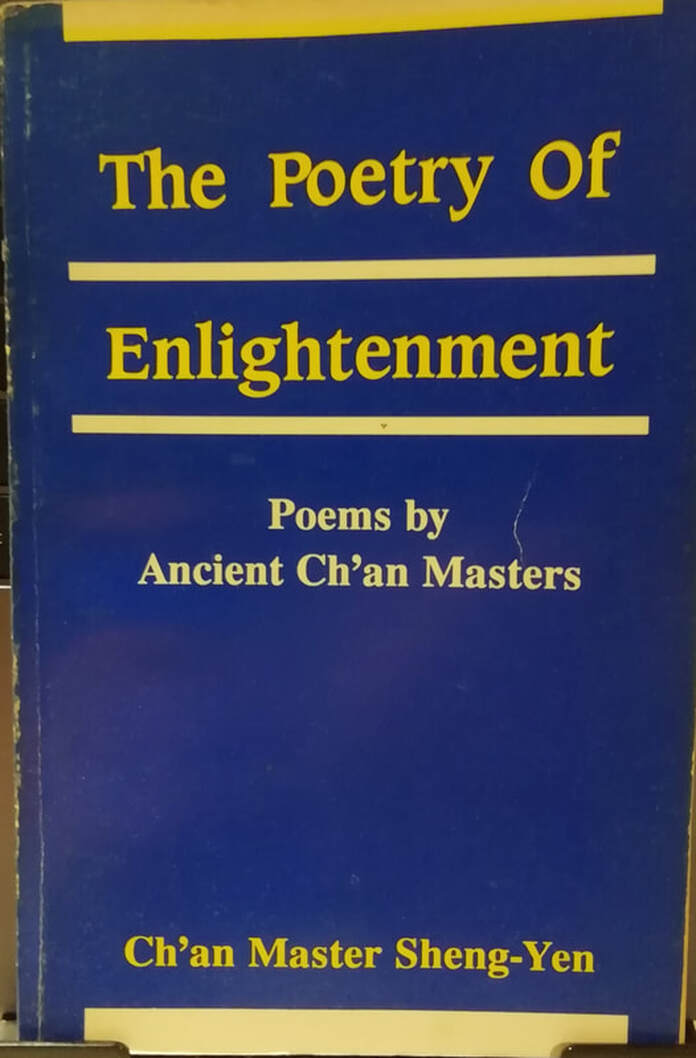
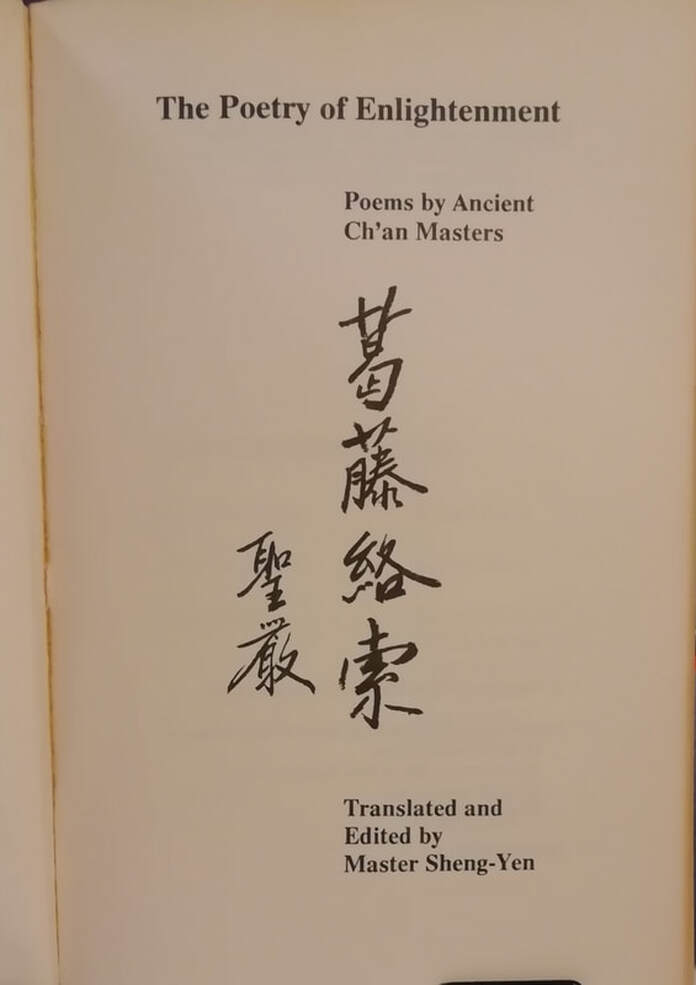
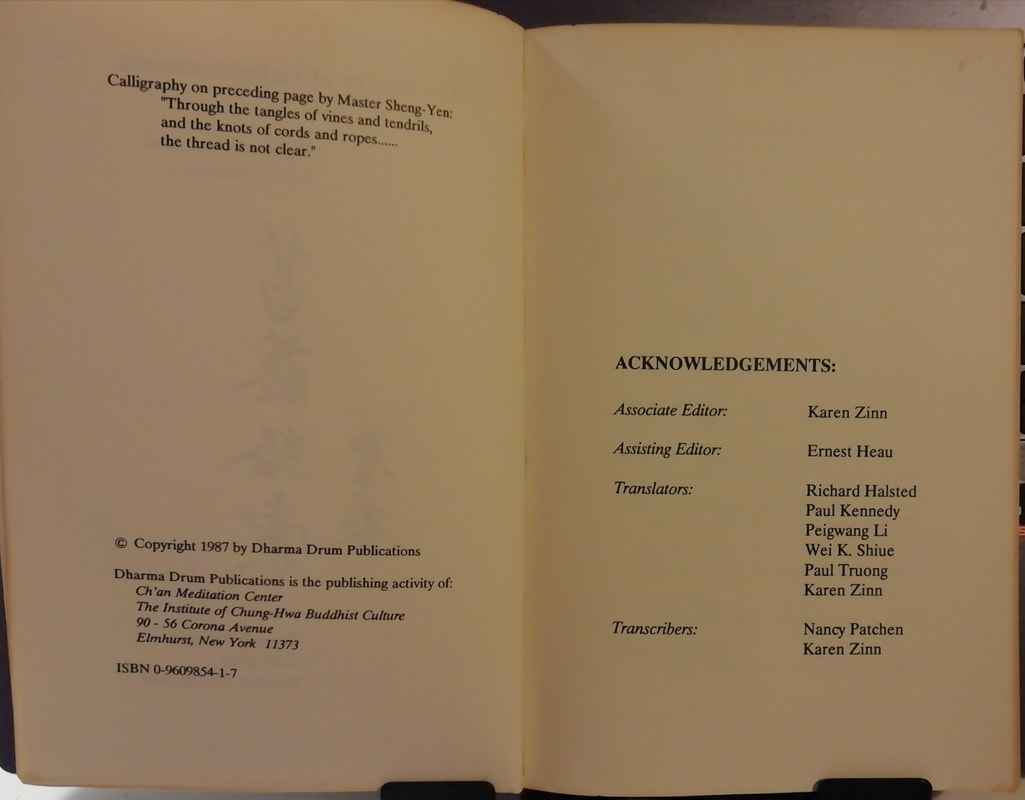
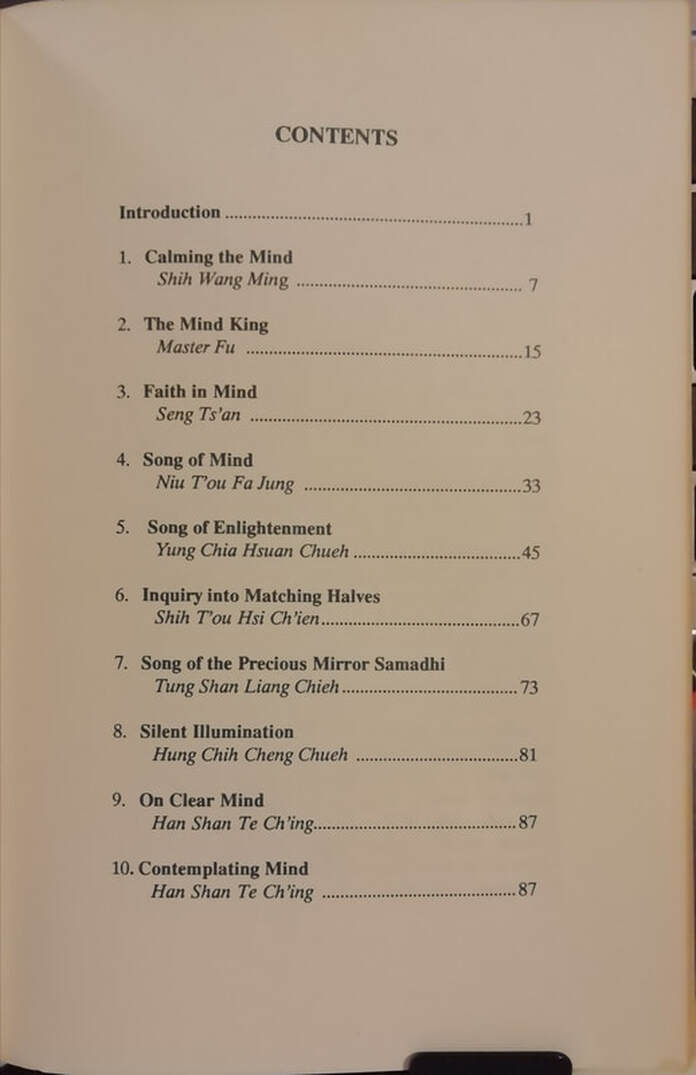
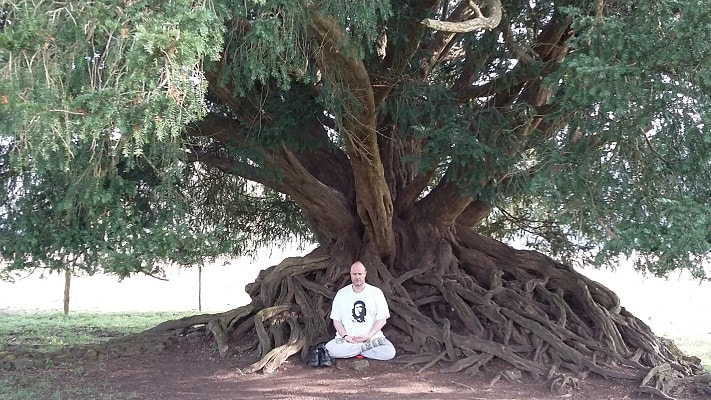
 RSS Feed
RSS Feed